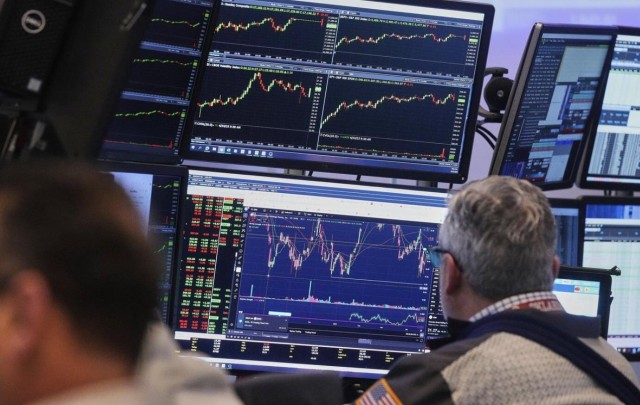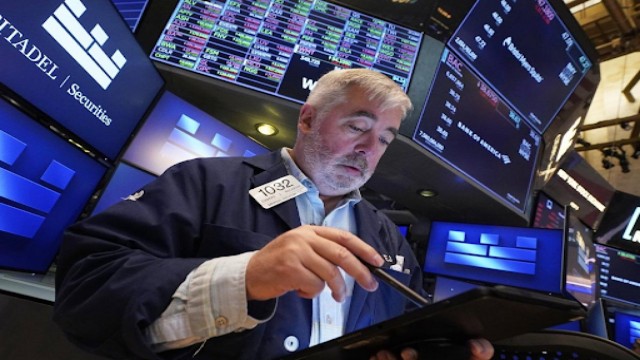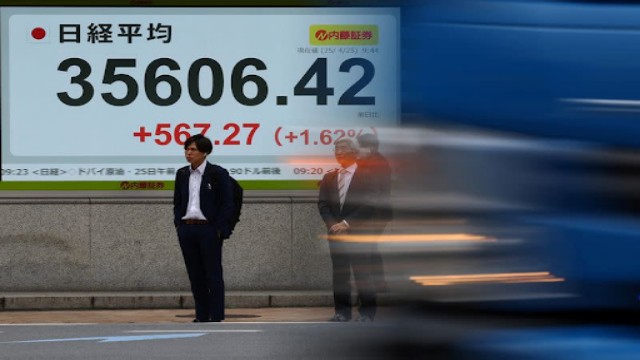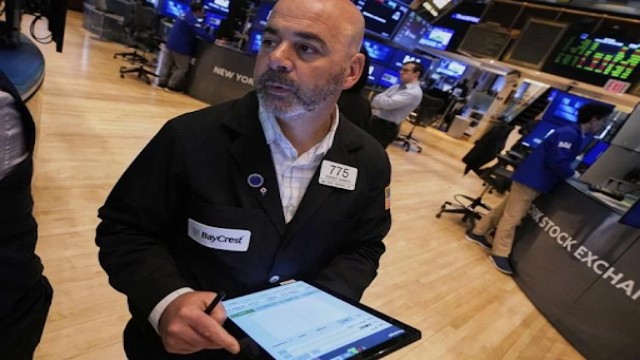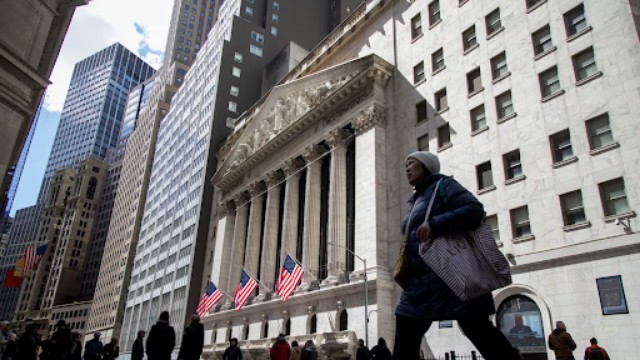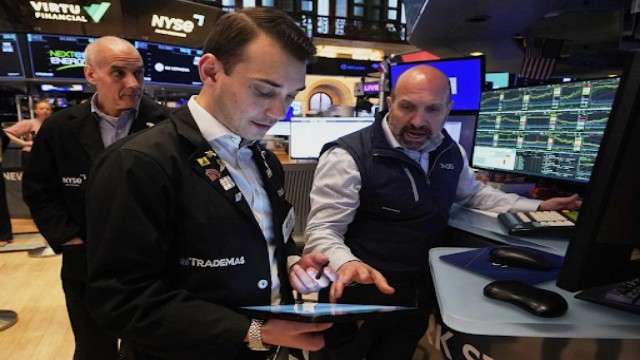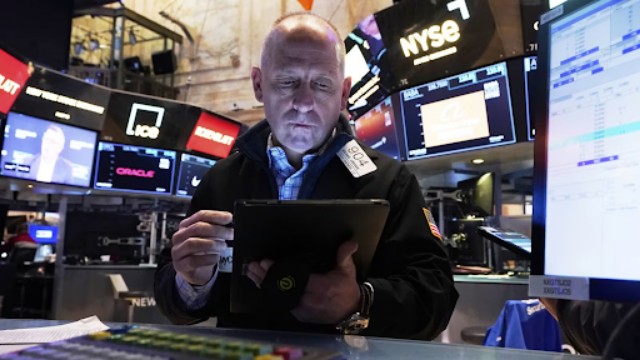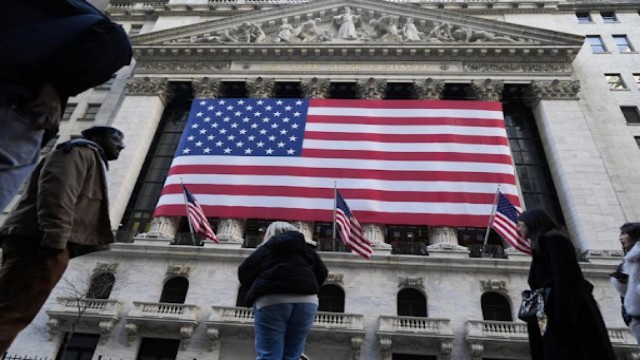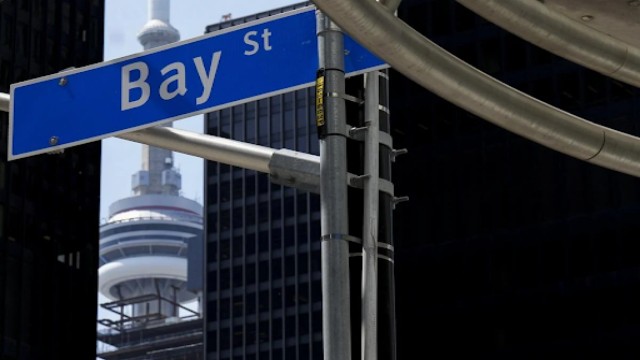
Traders conduct business on the New York Stock Exchange floor in New York City (Reuters)
U.S. stock markets took a sharp dive on Monday, with the Nasdaq and S&P 500 each dropping over 3%. This significant decline extended last week's sell-off, driven by growing concerns over a potential U.S. recession and a notable decrease in Apple shares after a major investor reduced its stake.
This marked the most considerable three-day percentage drop for all three major indexes since June 2022, with the Nasdaq and S&P 500 reaching their lowest points since early May. The fear of recession rattled global markets, pushing investors away from riskier assets following disappointing economic data, including a weak U.S. payrolls report released on Friday.
Investors are increasingly worried that the economy is slowing faster than expected and that the Federal Reserve made a mistake by keeping interest rates steady during its last policy meeting. Apple's shares fell by 4.8% after Berkshire Hathaway announced it had halved its stake in the tech giant. Meanwhile, Berkshire's cash reserves surged to $277 billion.
Other major tech stocks, including Nvidia, Microsoft, and Alphabet, also saw declines. The Cboe Volatility Index, often referred to as Wall Street's "fear gauge," hit its highest close since October 28, 2020. All 11 sectors of the S&P 500 saw declines, with technology taking the hardest hit.
Chicago Federal Reserve President Austan Goolsbee attempted to ease recession fears but emphasized the need for Fed officials to be mindful of changing economic conditions to avoid overly restrictive interest rate policies.
Neville Javeri, a portfolio manager at Allspring in Washington, noted, "Today’s sell-off is a continuation of the anxiety we saw last week, which began with the job's data. It’s led to the belief that the Fed needs to take more proactive measures concerning unemployment numbers."
The Dow Jones Industrial Average dropped 1,033.99 points, or 2.6%, to 38,703.27. The S&P 500 lost 160.23 points, or 3%, to 5,186.33, and the Nasdaq Composite fell 576.08 points, or 3.43%, to 16,200.08. The S&P 500 reached its session low at 5,119.26, down over 4%.
The indexes managed to trim some losses in late morning trading after data indicated that the U.S. services sector activity in July rebounded from a four-year low, with an increase in orders and employment.
Despite the brief rebound, weak job reports and decreasing manufacturing activity in the U.S. added to concerns following recent disheartening forecasts from major tech companies. By Friday, the Nasdaq Composite had officially entered correction territory.
Traders are now anticipating a significant likelihood of the Federal Reserve cutting rates at its next policy meeting in September. According to the CME Group's FedWatch Tool, there’s an 86% chance of a 50 basis point cut and a 14% chance of a 25 basis point reduction.
The sell-off's focus has primarily been on the "Magnificent Seven" stocks, which had previously driven the indexes to record highs earlier this year. Additionally, some of the stock weakness was attributed to the unwinding of carry trades, where investors borrow from low-interest economies like Japan or Switzerland to invest in higher-yielding assets elsewhere.
On a brighter note, shares of Pringles maker Kellanova soared by 16.2% following a Reuters report that candy giant Mars was exploring a potential buyout of the company.
Trading volume on U.S. exchanges reached 16.50 billion shares, significantly higher than the 12.29 billion average over the last 20 trading days. Declining issues outnumbered advancing ones on the NYSE by a 9.04-to-1 ratio, and on the Nasdaq by a 6.44-to-1 ratio. The S&P 500 saw 16 new 52-week highs and 26 new lows, while the Nasdaq Composite recorded 14 new highs and 508 new lows.


